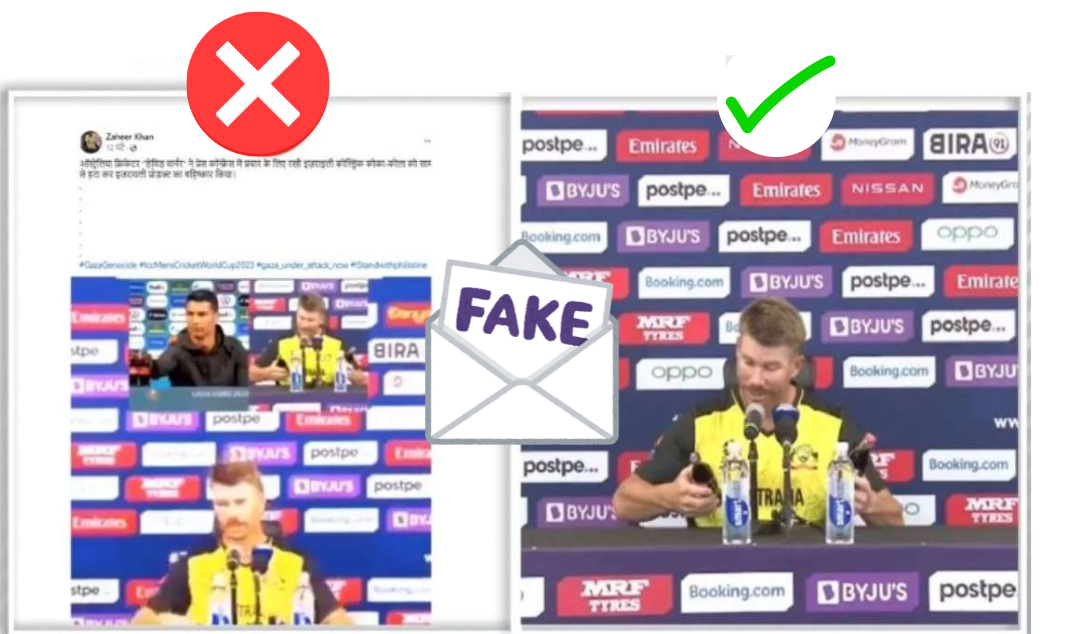A video of David Warner is being shared on social media claiming that he removed the Coca-Cola bottle in support of Palestine. India TV conducted a fact check of the viral claim.
Today’s fake news case involves a viral video on social media claiming that Australian cricketer David Warner boycotted Coca-Cola in support of Palestine. Let’s fact-check this claim.
What is the claim?
A video of Australian cricket star David Warner is going viral on social media. In the video, Warner is seen removing Coca-Cola bottles from a table. A social media user shared video on Facebook, stating, “Australian cricketer David Warner removed the Israeli cold drink Coca-Cola from the table during a press conference in protest against Israeli products.” Another user, made a similar claim.

Our Investigation
David Warner’s video is going viral on social media. Therefore, we decided to investigate it. First, we used Reverse Image Search. We found several videos of David Warner removing Coca-Cola bottles. However, the significant point was that these videos were from quite some time ago. Hence, we were convinced that Warner did not take this step regarding the Israel-Palestine issue.
What is the truth?
Further investigation revealed the complete truth behind the incident. David Warner removed Coca-Cola bottles from the table during the T20 World Cup in 2021. Before him, footballer Ronaldo had done the same.
What did the Fact Check reveal?
It revealed that David Warner did not remove the Coca-Cola bottles in support of Palestine. This incident is about 3 years old and is being shared with a false claim. People are advised to be cautious of such misleading news.
For All Cricket Fans
Misinformation refers to false or inaccurate information that is unintentionally spread. It can occur due to misunderstandings, misinterpretations, or errors. Misinformation is often shared innocently, without malicious intent.
Examples of misinformation include:
- Rumors: Spreading unverified stories or claims.
- Mistaken Identity: Incorrectly attributing an event or statement to the wrong person.
- Outdated Information: Sharing facts that were once true but have since changed.
Misinformation and disinformation pose a significant threat to societies worldwide, with particularly severe implications for countries like India. Spread of false information is critical risk perceived by experts across the globe. Addressing this challenge requires a multifaceted approach, including media literacy education, robust fact-checking mechanisms, and increased digital literacy among the population. Read more in our latest article about 4 quick things about misinformation.

